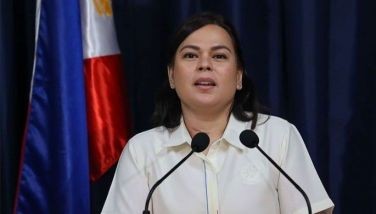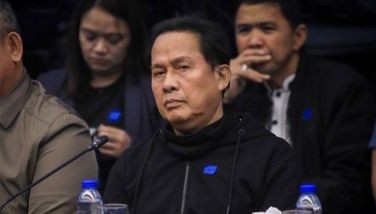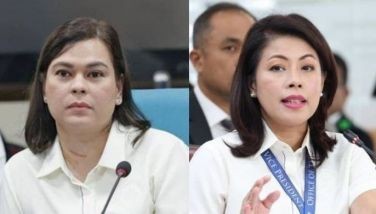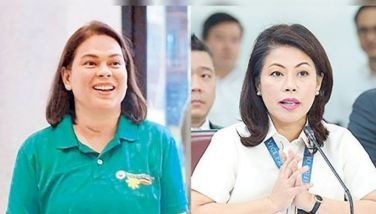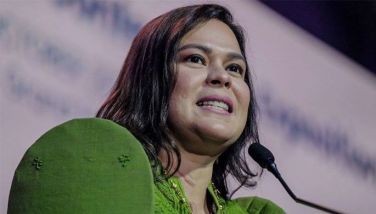Senate starts Cha-cha hearing
MANILA, Philippines - The Senate began its public hearing on Charter change (Cha-cha) yesterday with four retired justices and two legal experts expressing their views on the controversial issue.
Retired chief justice Reynato Puno, retired justice Vicente Mendoza, and former University of the Philippines president Jose Abueva favored shifting from the presidential to a parliamentary system.
Sen. Miriam Defensor-Santiago, who chairs the Senate committee on constitutional amendments, revision of codes and laws, said the Senate would continue with the discussions although President Aquino is against Cha-cha.
Santiago hopes to wrap up the discussions at the committee level before the mid-year congressional break, and bring it up for debates on the floor as soon as possible.
UP Law Dean Merlin Magallona said amending the Constitution must be under the “aegis of the overriding principle of sustainable development.”
Retired justice Adolfo Azcuna proposed that Congress must, in proposing amendments or revisions to the Constitution, act as a constituent body, not as a legislative body.
Congress must meet in joint session due to the importance of the subject matter although the voting must be made separately in view of the bicameral nature of Congress and in the absence of the provision to vote jointly, he added.
Retired justice Florentino Feliciano contradicted Puno’s statement that the country is becoming a failed state because of loopholes in the Constitution.
“If we as a people or nation fail constantly or repeatedly to mobilize the necessary level of determination and patience and fail to apply our minds to those problems... then the warning of chief justice Puno may well become more resonant,” he said.
Abueva said the shift to parliamentary government also results in a major reform on the country’s electoral system and political party system.
“Parliamentary government will eventually help us have a functional democracy and good governance,” he said.
Abueva said a shift to a parliamentary system will also reform the electoral and political party systems.
Major changes in the Constitution must also be made to reform the judiciary, constitutional commissions, and the liberalization of policies on foreign investments or delegating such policies to the legislature and a Bill of Duties to balance the Bill of Rights, he added.
Puno said the executive has more power than the two branches of government.
“It is apparent that the President is the ultimate center of gravity in government,” he said.
“It has also caused instability, for in the hands of an executive prone to error, it can provoke people power uprising,” he added.
Puno said a parliamentary system concentrates political power at the highest level of authority through the prime minister and his Cabinet.
“(This set-up) prevents the abuse of power by making the government dependent on popular support for its existence,” he said.
Puno said in the presidential system, government performance is audited periodically, while in the parliamentary system, review is constant.
“People will not have to wait for the elections before they can change public officials through the ballot,” he said.
Mendoza said the country must shift to a parliamentary system because under the presidential system, Congress and the President are in constant conflict over appointments, the ratification of treaties and legislative investigations and the exercise of veto power.
Abueva said since parliament exercises legislative and executive powers, it will better ensure the coordinated making of laws and policies and their efficient and effective implementation.
Azcuna discussed the process by which the Constitution should be amended or revised.
Azcuna said the 1987 Constitution is the “longest running Constitution that has withstood without amendment or revision.”
- Latest
- Trending















